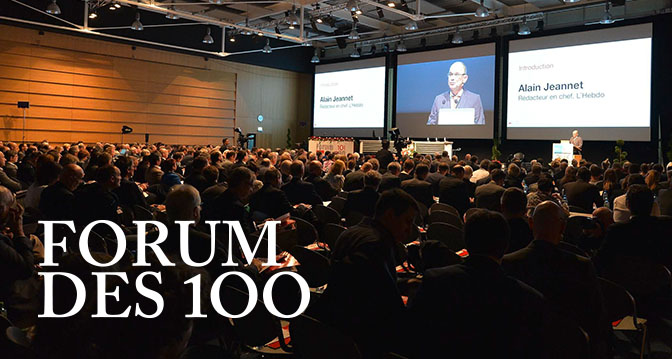
The “Forum des 100” is an annual forum of expression and exchanges organized in French-speaking Switzerland by Le Temps, the main newspaper of the region. Business leaders, policymakers, academics and journalists work alongside pioneering experts and associations in ecological transition. The energy transition is therefore only one of the subjects addressed during this day.
The 2019 edition, remarkably organized, made it possible to highlight major characteristics of the ecological transition.
We are now in the days of action
All the participants agreed that all the necessary diagnostic elements are available and converge towards a rather alarmist statement and a sense of urgency. We are all free, by strategy or stupidity, to challenge them.
So time is up for action with two main questions: “how? And how to do it faster? “
The gap between the awareness of politicians and people’s expectations remains high
The expectations of citizens present are clearly and massively expressed: they are in line to respond as quickly as possible to the diagnosis mentioned above.
The political decision-makers present occupied a rather wide spectrum, ranging from the convinced and disillusioned decision-maker by the meagerness of his results to the decision-maker, who was obviously not very concerned but could no longer show it in public.
This gap is in line with the procrastination of many political parties which, in European countries, integrate elements of environmental policy by necessity rather than by conviction.
The paradoxical gap between business objectives and the need
The industrial companies present have engaged in an ultra-prepared and well-honed communication exercise. Beyond form, two paradoxes emerge clearly:
– The need for them to combine, continuously, imperative of profitability and environmental objectives
– The ambitious nature of their environmental objectives, in terms of management standards, unaccustomed to productivities of the order of 30% to 50% and the insufficient nature of such objectives to meet the needs and expectations of some.
Greenwashing has made damages and destroyed trust between the major economic players and part of the public. Let us hope for these companies that the proportion of informed and concerned public does not make the proportion of the indifferent public diminish for the moment.
The limits of consultation
Workshops were organized and the consultation should continue. These workshops have shown that I have already observed, and that the consultation is a tool very difficult to handle, although essential.
The lack of knowledge / understanding of complex themes leads to games of actors that are difficult to master within groups: frustration in the face of discrepancies between individuals, taking power through knowledge, impostor’s syndrom etc …
The quality of group work summaries depends on the rapporteur’s degree of understanding, which tends to filter out what he has not understood: he is de facto establishing a sort of leveling down.
These observations plead for ever more pedagogy and explanations about ecological and energy transitions and a very parsimonious and attentive organization of collaborative sessions to minimize value-destroying biases.
Difficulty to think globally
Finally, the forum showed a difficulty to think globally. The few experts present all insisted on the obligation to think globally, as if the expertise or the deepening of a theme related to the ecological transition allowed or led to a path of thought, to a maturation, leading to understand this imperious need.
The difficulty for the experts is to wait until their interlocutors have made the same path, perhaps in an accelerated manner or stimulated for a better mutual understanding.
The “Forum des 100” is intended to give birth to a charter of the Swiss ecological transition that will be submitted to political leaders in this election year. May it also allow all actors, drawing on their common experience, to understand how to change the decision-making and governance of the ecological transition to gain speed and efficiency.
Subscribe to receive every quarter all articles of the blog: [sibwp_form id=2]

Leave a Reply